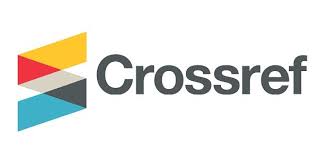Guidance of Prisoners in Penitentiary
DOI:
https://doi.org/10.33061/wh.v26i2.3865Keywords:
Prisoners, Systems, Corrections.Abstract
The prison system that emphasizes the elements of revenge and detention accompanied by a "prison house" institution is gradually seen as a system and means that are not in line with the concept of rehabilitation and social reintegration, so that prisoners are aware of their mistakes, In the correctional system, prisoners, children Penitentiary students have the right to get spiritual and physical guidance, and their rights are guaranteed to carry out worship, deal with outsiders, both families and other parties, and obtain information both print and electronic media obtain proper education and so on. Formulation of the problem How guidance prisoners. Objective To find out the guiding of prisoners in a penitentiary. The method used in this research is a sociological juridical approach, which is a research approach that looks at and examines the laws and regulations related to the problem and connects the reality that occurs in the field. That the implementation of inmate training is carried out based on a penal system which is a guidance to the prisoners' personalities carried out by a coaching program with forms of guidance in the form of religious education, general education, skills courses, recreation, sports, arts and work training.
References
Bumikaya, A. Widiada.1998. Sejarah dan Konsepsi Pemasyarakatan, Bandung: Armico.
Danil, Elwi dan Nelwitis. 2002. Hukum Penitensier. Padang: Universitas Andalas.
Muladi dan Arief, Barda Nawawi. 2005. Teori-Teori dan Kebijakan Pidana. Bandung: PT. Alumni.
Priyatno, Dwidja. 2006. Sistem Pelaksanaan Pidana Penjara di Indonesia, Bandung: Refika Aditama.
S. Soemadipraja, R. Ahmad dan Atmasasmita, Romli. 1979. Sistem Pemasyarakatan di Indonesia. Bina Cipta Bandung.
Soerjono, Suekanto. 1986. Pengantar Penelitian Hukum : Universitas Indonesia
Sujatno, Adi. 2008. Pencerahan di Balik Penjara. Jakarta: Teraju.
W.J.S. Purwadarminta. 1984. Kamus Umum Bahasa Indonesia: Balai Pustaka.
Undang-Undang Republik Indonesia Nomor 12 Tahun 1995 tentang Pemasyarakatan.
Wawancara dengan Bapak Efiandi PI, SH, selaku Kasi Binadik Lembaga Pemasyarakatan Klas IIA Padang.
Wawancara dengan Bapak Alizar S.H, MH selaku Kasi Binadik Lembaga Pemasyarakatan Klas IIA Padang.
Downloads
Published
How to Cite
Issue
Section
License
Authors who publish with this journal agree to the following terms:
- Copyright on any article is retained by the author(s).
- The author grants the journal, the right of first publication with the work simultaneously licensed under a Creative Commons Attribution License that allows others to share the work with an acknowledgment of the work’s authorship and initial publication in this journal.
- Authors are able to enter into separate, additional contractual arrangements for the non-exclusive distribution of the journal’s published version of the work (e.g., post it to an institutional repository or publish it in a book), with an acknowledgment of its initial publication in this journal.
- Authors are permitted and encouraged to post their work online (e.g., in institutional repositories or on their website) prior to and during the submission process, as it can lead to productive exchanges, as well as earlier and greater citation of published work.
- The article and any associated published material is distributed under the Creative Commons Attribution-ShareAlike 4.0 International License
















.png)


